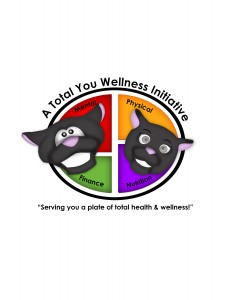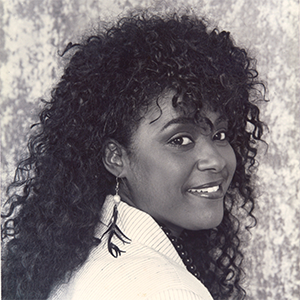All my life I have looked up and to my mother a strong, independent entrepreneur. But, you never really understand the battles your parents have fought until you are in the position as caregiver. To be honest, I felt a bit intrusive going through all of my family’s documents while searching for answers.
Beginning around November 29, 2009, I started the painstaking journey as a private investigator. On this date, I lost my grandmother, former Prairie View A&M University English Professor, Dorothy Bowman, to the wickedness of dementia and Alzheimer’s. I didn’t know the full stint of how wicked this disease could be until years later.
It was during the planning of my grandmother’s funeral when I noticed things about my mother’s state of mind that resembled my grandmother’s state of being. Could it be? As a son, I hoped this was not happening to my mom, but the realization soon set in that she too had been struck with the disease. The signs were gradual, but evident. What do I do, how do I feel and who do I turn to? The strong, independent woman was going to be a distant memory. How do I prepare myself and her for this unfortunate adventure?
As I share a bit about my mother, Deborah Bowman Jackson, she just celebrated her 65th birthday, despite the prognosis of doctors stating she would not live to see that day. She beat that odd. I felt confident and hopeful.
My mom graduated from Prairie View A&M University with a degree in Sociology and worked as a social worker for many years. However, her entrepreneurial spirit took over and she single-handedly owned and operated two successful businesses in Colorado. She has always been a busy lady, assertive and attentive about politics and dedicated to her sorority (Alpha Kappa Alpha). So if there was such a thing as, “not a typical Alzheimer’s/dementia patient”, she would be it.
The more I educated myself and pondered the past 20 years or more certain things and behaviors of my mom, I can now see that the early signs were there. Unfortunately, I just didn’t know what I was seeing. I beat myself up daily. I often wonder, “What could I have done differently?” or “What if I knew the signs sooner?”
By educating myself, I learned Alzheimer’s is the 6th leading cause of death in America and it CANNOT BE PREVENTED, CURED OR SLOWED. What does this mean to you? If you notice any of the warning signs in yourself or someone you know, don’t ignore them. Instead, explore treatments that may provide some relief of symptoms and help maintain a level of independence longer. For instance, being proactive may increase your chances of participating in clinical drug trials that will help advance research.
Hence, this knowledge did not prevent my self-reflection regarding my mom. She started exhibiting signs of the diseases in her 40’s. Although many believe Alzheimer’s and dementia are diseases for the elderly or senior population, I can tell you from firsthand experiences such sentiment is untrue for my family and me. Like cancer, Alzheimer’s and/or dementia is nondiscriminatory and devours its prey as slowly or quickly as it sees fit. And in a blink of an eye, my mother became one of its victims and her progression of the disease has been rapid since 2009.
Upon researching the disease, I have learned that it has 7 stages. It was the sixth stage in which my grandmother succumbed at the age of 89. Yet, my mother who is 65 is stage 7c and that means my mother has lost the ability to communicate and respond to the environment around her. Hence, as a son, I am preparing for the unthinkable as I am about to lose my role model, cheerleader and advocate of life.
Prairie View A&M University College of Agriculture and Human Sciences Family and Consumer Sciences facilitate workshops on several topics of mental health through their Total You Wellness Lecture Series including the most recent discussion on Alzheimer’s and Nutrition. This topic is also included in a curriculum that our Family and Consumer Sciences program Specialist, Danielle Y. Hairston Green, is the lead author on and is currently in progress.
 The Total You Wellness lecture series takes place in various counties and venues including Harris County, Waller County and Washington County. The lectures are research based, interactive, informative, free and open to the public. Although there is no cure for Alzheimer’s, early diagnosis is key. It has been discovered medicinally, Lemon Balm has a calming effect: one study showed an oral dose taken daily for four months appeared to help reduce agitation and improve symptoms of mild to moderate Alzheimer’s disease. Additionally, Curcumin have been linked to decrease common brain disorders such as Alzheimer’s. Consult your or your loved ones Geriatric physician, before administering any medicinal plant doses.
The Total You Wellness lecture series takes place in various counties and venues including Harris County, Waller County and Washington County. The lectures are research based, interactive, informative, free and open to the public. Although there is no cure for Alzheimer’s, early diagnosis is key. It has been discovered medicinally, Lemon Balm has a calming effect: one study showed an oral dose taken daily for four months appeared to help reduce agitation and improve symptoms of mild to moderate Alzheimer’s disease. Additionally, Curcumin have been linked to decrease common brain disorders such as Alzheimer’s. Consult your or your loved ones Geriatric physician, before administering any medicinal plant doses.
Although by the time this article is published my mom, Deborah Bowman Jackson will be called home, I hope to continue to bring awareness and offer assistance to those that may not be aware. Only 45% of people with Alzheimer’s disease or their caregivers report being told of of their diagnosis. Compared to more than 90% of people with the four most common types of cancer have been told of their diagnosis.
Join, support, educate yourself and donate to help find a cure to Alzheimer’s by visiting: alz.org and search TEAM DEBORAH or use this QR Code: 
Maurice Perkins
Media and Publications Coordinator
maperkins@pvamu.edu
(936) 261-5116


